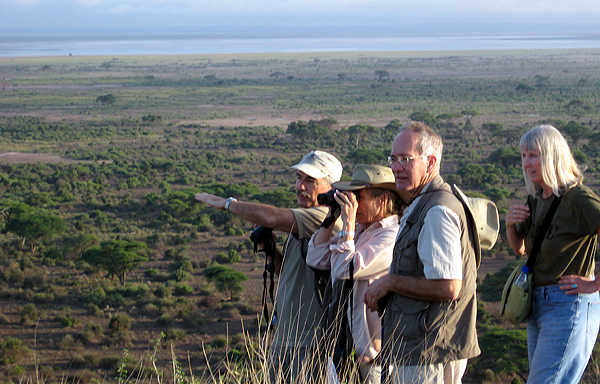
So finally we have evidence of exactly when it is likely to be safe enough to return to East Africa: June 1.
This isn’t said exactly right. This is the date that the most reliable, experienced safari companies in Kenya and Tanzania believe tourists will really return. I agree, though I think it will be much more slowly than they do.
The clarity began with one of East Africa’s oldest and most trusted midmarket safari companies: Sopa Lodges.
Sopa manages five lodges in Kenya and three in Tanzania, all on the main circuit and all large and excellent. There are few frills but the company nailed locations and built attractively. Its property at Ngorongoro Crater is arguably the best on the rim for having the only sunset view.
This week they announced all but one lodge, Lake Naivasha, would remain closed because of the virus until June 1. Lake Naivasha has increasingly served the local market and was recently upgraded with a quasi-water park for children. The other lodges serve the international market and are principally for game viewing.
Quickly a number of other companies followed suit.
There was enormous hope that the end-of-year season would herald the end of the traveler pandemic, but why eluded me. Despite ridiculously cheap “return offers” that fell below 25% of pre-Covid rates, properties remained empty. Western countries began experiencing the oft-predicted second surge in September. And the virus rollout of just the last week or so suggested the majority of western populations would not be fully vaccinated before mid-year.
Nonetheless safari companies blew up the balloons and pounded the drums and dressed for the imminent return of the traveler.
Only to be disappointed.
Zanzibar announced with great fanfare that nearly 12,000 travelers, mostly from Russia and France, visited the island in October (down from a normal monthly average of 100,000) but indications are that the end-of-the-year has tanked.
Most foreign visitors to East Africa come from developed countries where widespread vaccination won’t be realized before June. While this doesn’t address other important considerations for going on safari, it is the best barometer as to when travel will resume.
The wise traveler, however, will scrutinize at least two other critical situations: the state of the pandemic in the destination, and the state of the industry in the destination.
We know the virus is out of control in Tanzania. We know that in Uganda and Ethiopia that despite real government attempts to contain it, it’s proving a challenge. Only Rwanda and Kenya managed some element of real control in East Africa, but keep in mind that the surge predictions change on the equator. The second surge western countries are now experiencing is likely to hit equatorial and sub-Saharan Africa beginning in March.
Combined with the likelihood that in countries like Kenya and Rwanda widespread vaccination won’t be realized before the end of 2021, and in Tanzania and Uganda later, it means vaccinated or not the traveler will be walking into an ongoing pandemic.
We don’t know well enough yet what that means. If you get a vaccination with a lower efficacy, is there a threshold at which your risk is too great? Must you continue to wear masks to avoid becoming a transmitter?
Finally, the devastation in the industry is serious and widespread. Even with good companies like Sopa, or very exclusive ones that may only operate one or two properties, they will have lost staff, lost supply chains and quite possibly suffer from governments depressed from maintaining roads and electricity.
But a third to half of all safari companies that existed on January, 2019, will not exist in sub-Saharan Africa on June, 2020.
No one is as anxious to return to East Africa as I am. But with my age and clients in tow patience is the word of the moment.